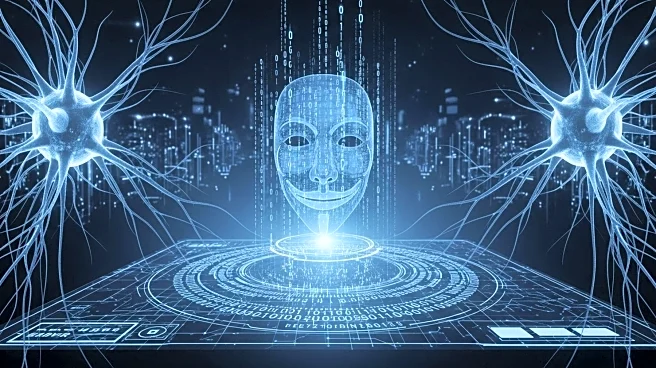What is the story about?
What's Happening?
OpenAI has introduced a new app called Sora, which allows users to create deepfake videos for entertainment purposes. The app, powered by OpenAI's latest video generation model, Sora 2, offers a TikTok-like experience where users can generate and share AI-generated videos of themselves and others. Available on iOS, Sora requires an invite code for access. Users can create digital avatars by recording their likeness and voice, which can then be used in various video scenarios. The app provides options for users to control who can use their digital likeness, ensuring some level of privacy and consent.
Why It's Important?
The release of Sora highlights the growing trend of using AI technology for personal entertainment and content creation. While the app offers new creative possibilities, it also raises concerns about privacy, consent, and the potential misuse of deepfake technology. The ability to create realistic digital avatars could lead to ethical dilemmas, particularly if used without the subject's permission. As deepfake technology becomes more accessible, there is a need for clear guidelines and regulations to prevent misuse and protect individuals' rights. The app's popularity could influence how AI is integrated into social media and entertainment platforms.
What's Next?
As Sora gains traction, OpenAI and other stakeholders will need to address potential ethical and legal challenges associated with deepfake technology. The company may need to implement stricter controls and verification processes to prevent unauthorized use of individuals' likenesses. Additionally, there could be increased pressure on regulators to establish comprehensive policies governing the use of AI-generated content. The app's success could also inspire other tech companies to develop similar platforms, further expanding the role of AI in digital entertainment.


















